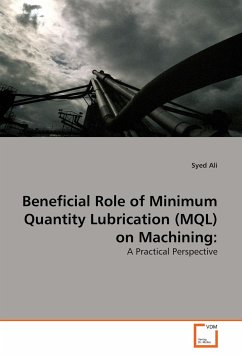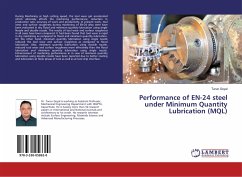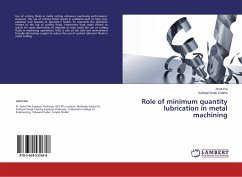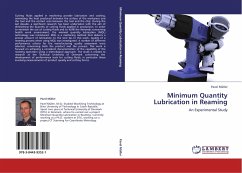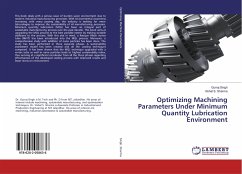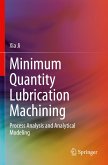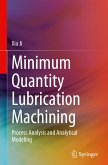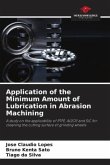Minimum quantity lubrication (MQL) refers to the use of cutting fluids of only a minute amount typically of a flow rate of 50 to 500 ml/hour which is about three to four orders of magnitude lower than the amount commonly used in flood cooling condition. The concept of minimum quantity lubrication (MQL) has been suggested since a decade ago as a means of addressing the issues of environmental intrusiveness and occupational hazards associated with the airborne cutting fluid particles on factory shop floors. This research work deals with experimental investigation on the role of MQL by VG-68 cutting oil on chip thickness ratio, cutting temperature, cutting forces, tool wear and surface roughness in turning medium carbon steel at industrial speed-feed combinations by uncoated carbide insert in a MQL environment. The encouraging results from experimental investigations include significant reduction in tool wear rate, dimensional inaccuracy and surface roughness by MQL over dry machining mainly through reduction in the cutting zone temperature and favorable change in the chip-tool and work-tool interaction.

